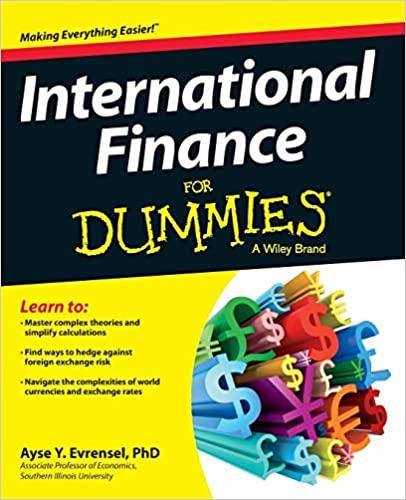Question
Suppose the average return on FTSE TMX Canada long-term bonds is 6.50% and the standard deviation is 8.50% and the average return and standard deviation
Suppose the average return on FTSE TMX Canada long-term bonds is 6.50% and the standard deviation is 8.50% and the average return and standard deviation on T-bills are 3.70% and 3.00%, respectively. Further assume that the returns are normally distributed. Use the NORMDIST function in Excel to answer the following questions. (Do not round intermediate calculations. Round the final answers to 2 decimal places.)
a. What is the probability that in any given year, the return on long-term corporate bonds will be greater than 10%? Less than 0%?
| Greater than 10% | % | |||||||||||||||||
| Less than 0% | % | |||||||||||||||||
b. What is the probability that in any given year, the return on T-bills will be greater than 10%? Less than 0%?
| Greater than 10% | % | |||||||||||||||||
| Less than 0% | % | |||||||||||||||||
c-1 In 1981, the return on FTSE TMX Canada long-term bonds was -4.24%. How likely is it that such a low return will recur at some point in the future?
Probability %
c-2 T-bills had a return of 9.50% in this same year. How likely is it that such a high return on T-bills will recur at some point in the future?
Probability %
Step by Step Solution
There are 3 Steps involved in it
Step: 1

Get Instant Access to Expert-Tailored Solutions
See step-by-step solutions with expert insights and AI powered tools for academic success
Step: 2

Step: 3

Ace Your Homework with AI
Get the answers you need in no time with our AI-driven, step-by-step assistance
Get Started


